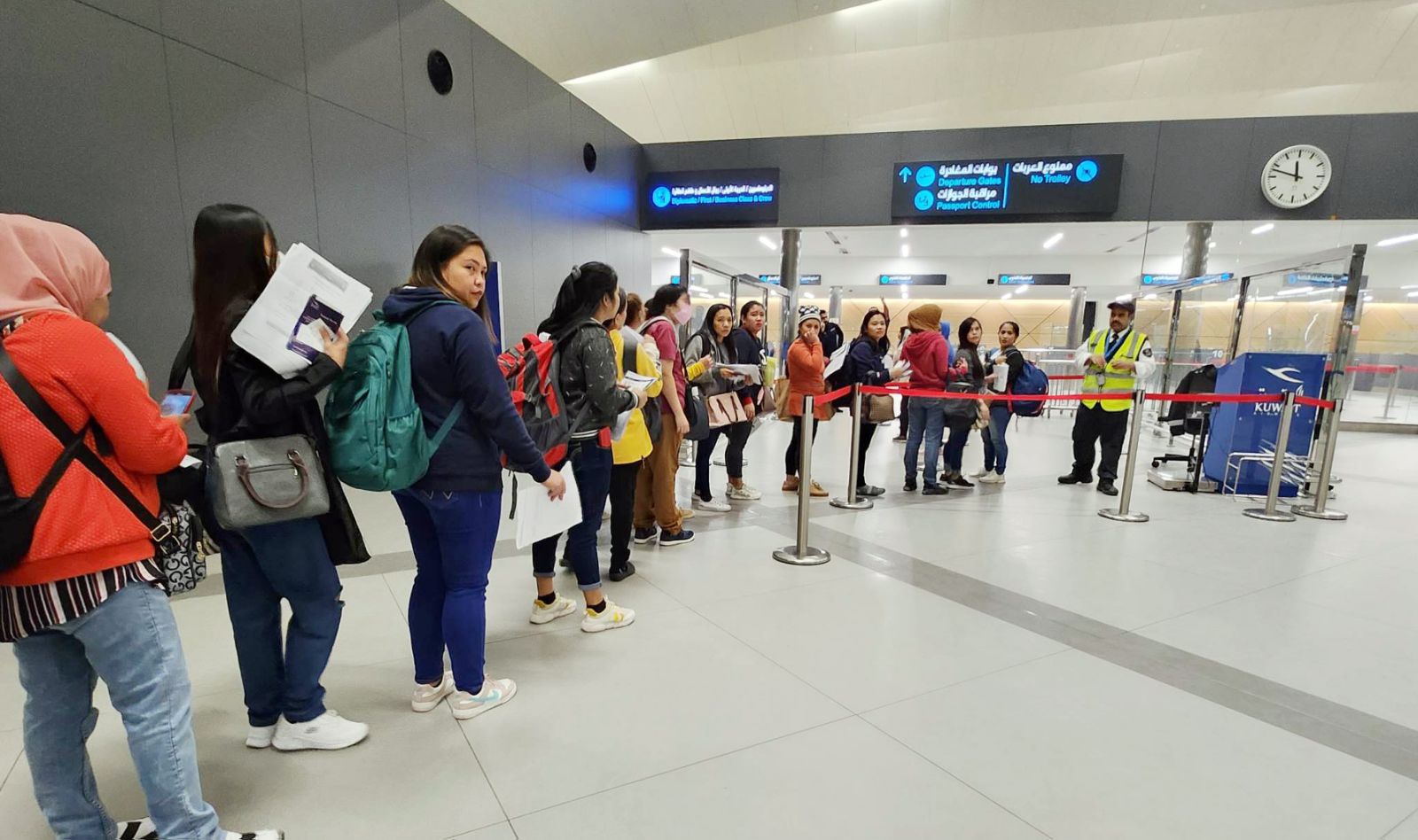News
Filipino workers preferred for Italy’s decreto flussi system

FILE: Overseas Filipino Workers (OFWs) are going through pre-departure procedures in Kuwait prior to boarding their flight to the Philippines on Tuesday, January 17. (Photo: Department of Migrant Workers/Facebook)
MANILA – The Philippine Embassy in Rome has welcomed the Italian government’s announcement on the inclusion of Filipino nationals among the list of non-European Union (EU) workers who can enter Italy through its decreto flussi or flows decree program.
“There continues to be a high demand for Filipinos in Italy across different sectors. As one of the earliest labor communities in Italy, there is familiarity and preference for the high quality of work offered by Filipinos,” Philippine Ambassador to Italy Neal Imperial said in a statement.
Decreto flussi is an immigration policy that states how and when non-EU nationals can enter Italy. It also determines the allowed number of immigrants per country.
Every year, this program is open only for a few months depending on the Italy’s state of immigration and labor market.
There is no definite schedule or time for the opening of the program in a year. Moreover, individuals interested in applying for the program must wait for the Italian government’s announcement of appropriate quotas since work permits are not always and immediately available in Italy.
Three-year forecast
Imperial emphasized that Italy provides high labor standards and respects labor rights.
He reported that the latest Prime Minister’s Decree established a three-year forecasting of quotas where a total of 452,000 foreign citizens will be admitted to Italy for reasons of seasonal and non-seasonal subordinate work and self-employment.
About 136,000 foreign citizens will be allowed for the year 2023; 151,000 foreign citizens for the year 2024; and 165,000 foreign citizens for the year 2025.
Italy has set the non-seasonal subordinate workers quota to 52,770.
These workers will be in the sectors of road transportation of goods for third parties, construction, tourism or hotel, mechanics, telecommunications, food, shipbuilding, bus transportation of passengers, fishing, hairdressers, electricians, and plumbers.
A specific quota is reserved for non-seasonal subordinate workers in the sector of family and socio-sanitary assistance.
The quota is 82,550 for the seasonal subordinate workers in the agricultural and tourism-hotel sectors while the quota for the self-employed is 680.
Filipinos in Italy
Latest data from the Italian Ministry of Interior show that there are 166,718 Filipinos in Italy.
They are located in the metropolitan cities of Rome and Milan, which together host approximately 50 percent of the migrants.
According to the Italian Ministry of Labor and Social Policies last year, the Philippines is the third largest destination country for remittances from Italy, after Bangladesh and Pakistan, accounting for almost 8 percent of the funds leaving Italy towards the rest of the world.
The volume of remittances to the Philippines from Italy amounted to USD151.525 million, according to data from the Bangko Sentral ng Pilipinas.
The Embassy reminds Filipinos who want to access the decreto flussi system that admission of the worker for subordinate work can only be done through an individual and nominal request by an employer hiring in Italy.
The job orders of Filipino workers who want to enter through the system must be verified by the Migrant Workers Office (MWO) in Rome.
The employer and/or recruitment agency must submit the documentary requirements by the MWO and the Department of Migrant Worker for the prospective worker to be issued an overseas Filipino worker pass, which include among others, the no objection to work certificate and visa.
The MWO in Rome is ready to assist in the verification of job orders of qualified applicants through the decreto flussi system to prevent illegal recruitment and scams.





















